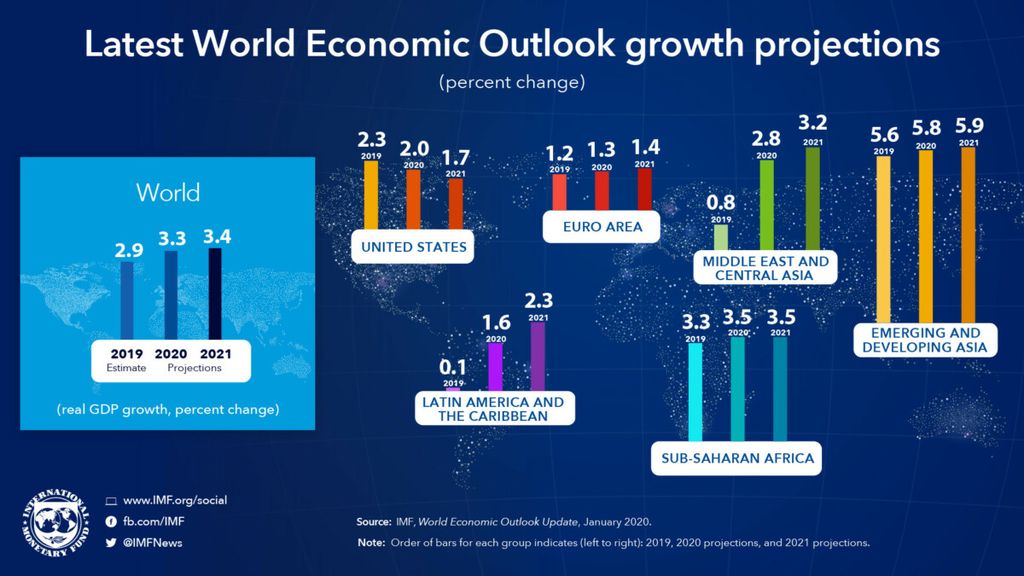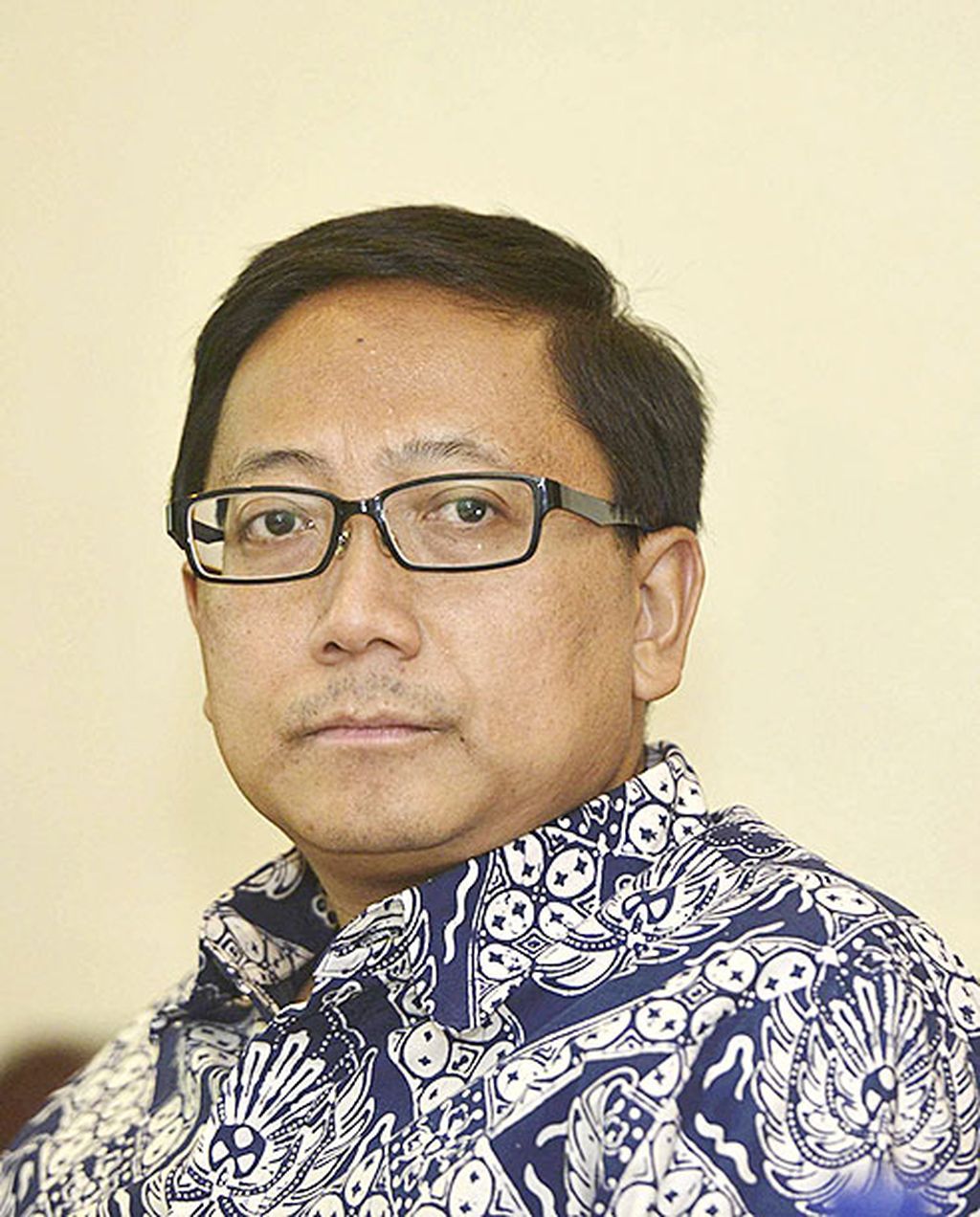Why is Recovery Not Faster?
We face frequent mediocrity. This may be because we are afraid to take a firm stance, or otherwise, are too complacent to take action. Both end up with the similar situation of being stunned at uncertainty.

We face frequent mediocrity. This may be because we are afraid to take a firm stance, or otherwise, are too complacent to take action. Both end up with the similar situation of being stunned at uncertainty.
This is how Danish philosopher Søren Kierkegaard explains it in his thesis, On the Concept of Irony (1841).
We are not going to discuss philosophy. We are only borrowing it to observe the empirical symptom that haunts our prospects for economic recovery this year.
It is important to reflect on M. Chatib Basri\'s thoughtful piece in Kompas (10/2/2021), “Why Indonesia Must Recover Faster”. This article does not refute, but complements, the facts that are not necessarily pleasing. The hope is that we will recover more quickly by following these complicated and unpromising facts.
Also read: Putting Together Pieces of Recovery Puzzles
In the latest January 2021 edition of the World Economic Outlook, the International Monetary Fund (IMF) projected is 4.8 percent economic growth for Indonesia this year. As a matter of fact, its projection was much higher at 6.1 percent in the October 2020 outlook. Our prospects for economic recovery are likely to weaken with time.
It must be acknowledged that making projections amidst the current uncertainties is not easy. However, the point is that the hope of quicker recovery is meeting with facts that appear unpromising.
The contraction is moderate, but the economic recovery projection is not very exciting, either.
Statistics Indonesia (BPS) has just released its 2020 growth data of minus 2.07 percent, the worst since the 1998 Asian Financial Crisis. The contraction is moderate, but the economic recovery projection is not very exciting, either. The government has projected 2021 growth of between 4.5 percent and 5.3 percent, a relatively moderate figure compared to the projections for other countries.
For example, the IMF has projected growth of 11.5 percent for India this year, higher than its 8.1 percent growth projection for China. Last year, the Indian economy contracted 8 percent.
Also read: Growth Prospect for 2021
The more severe the contraction, the higher the economic recovery will be, because economic growth measures the difference in national production output for a certain period in comparison with the previous period.

The projections of the International Monetary Fund (IMF) on world economic growth.
With regard to this moderate path toward economic recovery, have we actually chosen it, or has the situation forced us to go on that path? Perhaps the answer is, both.
Restrictive situation
Economic policy is always confronted with limited choices and a dilemma in every decision. Choosing any one of these results in losing the opportunities inherent in the other choices. In tackling Covid-19, it seems that we have chosen the path of moderate policy, because the situation is indeed restrictive.
First, on the fiscal side, we are bound by Law (UU) No. 17/2003 on State Finance, which caps the budget deficit at 3 percent. In fact, we know that this extraordinary situation requires a very large fiscal stimulus. This limitation has been resolved with the issuance of Regulation in Lieu of Law (Perppu) No. 1/2020 on opening regulatory barriers, especially in relation to the fiscal deficit.
Also read: 2021: Between Pandemic and Economic Recovery
Second, even though it has opened the deficit cap, the Perppu also binds us to restore the 3 percent cap in 2023. That is why stimulus packages are not being issued progressively even though the deficit cap has been eased, because it carries the burden of being restored two years from now. The current recession is indeed very difficult to calculate, nor is it easy to predict. The condition to restore the 3 percent deficit cap may be part of the difficulty compounding the situation.
In fact, from the perspective of political courtesy, it makes sense for the President to restore state finances to a prudent condition before his term comes to an end.
Third, even though the government has the opportunity to issue another Perppu that extends the above 3 percent deficit cap over the succeeding period, it seems that the political situation is not necessarily conducive to this: The terms of President Joko Widodo and his Cabinet will end in 2024. In fact, from the perspective of political courtesy, it makes sense for the President to restore state finances to a prudent condition before his term comes to an end.
The Covid-19 pandemic is an invisible enemy whose end still cannot be easily predicted. Complicating the issue further, even epidemiologists do not dare to theorize on how it will end. It is very possible that Covid-19 will not go away, and that the pandemic will become endemic. Even though it is not as widespread today and is perhaps less deadly than it was before, the coronavirus will remain with us for some time.
Also read: Vaccines and Economic Recovery
This means that the economy will not return to its state in the days before Covid-19. It may be that some industrial sectors will not be able to return to their previous growth levels, but there are also sectors that pose even greater opportunities for growth.
The problem is that if the diminishing sectors absorb a large number of workers, the government cannot remain silent. Fiscal policy must still continue to support social welfare. Social assistance and business stimulus may still be budget items the government must provide in the long term.
In the past year, the government had been very careful in calculating the social expenditure that has become necessary due to the pandemic. Of course, the Finance Minister has calculated the continued availability of subsidies, but not their unlimited amount, let alone that the fiscal deficit cap of 3 percent must be restored by 2023. Policies have fairly limited space for maneuvering.
/https%3A%2F%2Fkompas.id%2Fwp-content%2Fuploads%2F2020%2F06%2F931a66a5-40e0-4022-af22-42c89d15b767_jpg.jpg)
Clothing traders at Binaan Warga Market in Jatibaru, Tanah Abang, Central Jakarta, await buyers on Monday, (1/6/2020) They have kept their shops open during large-scale social restrictions (PSBB) because of economic need.
That is why the virus control measures cannot be taken to an extreme. Many countries have opted for strict lockdown policies for an extended period of time. New Zealand is one small country that has been very strict in isolating itself from global mobility, and has been able to declare itself as one of the few countries that is free of the coronavirus.
The strict lockdown policy has not been chosen because it is very costly. The government must provide a very high amount of social spending. In the end, what has ensued is a compromise. The restrictions are being kept in place, but cautiously.
As a result, many parties perceive it as an ambiguity sending unclear signals as to what to expect. The dilemma of an austere policy is complicated, so it has put us in a very awkward situation.
Direction for recovery
The Covid-19 vaccines have been a game changer for mitigating the pandemic. The speed with which vaccines are administered will largely determine the pace of economic recovery. Many countries are pushing national vaccination targets to achieve herd immunity, as Israel has done, with the hope that this will immediately spur the economy. This is the factor that has improved the growth projections for developed countries from previous calculations.
Also read: Notes on Turbulent 2020
The IMF has projected the 5.1 percent growth for the United States (US) this year. The US is one of the fastest recovering nations among developed countries.
Two factors have contributed to higher-than-expected US economic recovery among many circles. The first is a very aggressive fiscal policy that has pumped economic dynamics. The second is intensive vaccination. The combination of the two is the recipe that is considered the best for the present moment.
It seems that Joe Biden\'s government will have no difficulty in obtaining Senate approval for an additional US$1.9 trillion in pandemic economic relief. In fact, former president Donald Trump gained approval for a previous injection of more than $4 trillion.
As a result, government debt has jumped to 130 percent of gross domestic product (GDP).
The US’s pandemic cost is roughly equal to half the US economy. As a result, government debt has jumped to 130 percent of gross domestic product (GDP).
Regarding vaccination, Biden continues to push for the vaccination program by imposing strict health protocols. The two combined is also considered an effective formula, wherein vaccination cannot work on its own and must be accompanied by the strict application of health protocols.
The January 2021 edition of the IMF\'s Fiscal Monitor Update estimates that the US will experience a fiscal deficit of 11.8 percent this year, while China will see a deficit of 11 percent and India, 9.7 percent. Indonesia has taken the moderate path towards an estimated 2021 deficit of 6.1 percent.
/https%3A%2F%2Fkompas.id%2Fwp-content%2Fuploads%2F2021%2F02%2F20210209TOK01_1612880465.jpg)
President Joko “Jokowi” Widodo delivers his speech virtually during the commemoration of 2021 National Press Day in Ancol, North Jakarta, on Tuesday (9/2/2021. In his address at the event themed “Rising from the Pandemic, Jakarta as the Gateway to Economic Recovery with the Press as the Accelerator of Change”, the President expressed appreciation for all members of the press who had helped the government in educating the public to be disciplined in adhering to health protocols to prevent the spread of the novel coronavirus.
The 2020 budget realized a deficit was 6.09 percent, lower than the i6.34 percent estimated in Presidential Regulation No. 72/2020. This is certainly good news, as restoring the 3 percent deficit cap by 2023 draws near. On the other hand, however, there is the dilemma of losing the momentum for economic recovery, hampered by the suboptimal absorption of the recovery budget.
Indonesia’s recovery path is a bit different from India\'s, which saw sharp economic contraction in 2020 partly due to monetary tightening policies and the large cost of the crisis, but its prospects for recovery is faster. One of the main factors is that India has succeeded in significantly reducing the number of Covid-19 patients.
The may not be entirely due to its economic policies. It could be that the virus has started to weaken naturally.
What is clear is that this has not happened to us. Indonesia still has a relatively high number of active cases and we have seen no signs of the coronavirus abating. Nevertheless, increasing the economic cycle is highly dependent on decreasing the disease cycle. Vaccination is currently an important mitigation tool, and the match between the speed of administering the vaccine and the speed of rising infections must be won by accelerating the vaccination program.
This does not even take into account the health workers injecting the vaccines, whose numbers are neither evenly distributed nor unlimited.
However, this is no easy matter either, because even if a budget was available, production and distribution levels would not increase automatically. This does not even take into account the health workers injecting the vaccines, whose numbers are neither evenly distributed nor unlimited.
In the end, there is no easy way to deal with this complex problem. However, the government might need to be bold enough to tighten the economy, accelerate the vaccination program and loosen the fiscal deficit.
Also read: Consumption and Savings Behavior
There is no single formula, nor is there even a reference for success. Each country has its own formula. The pandemic is like a complex public policy experiment. One of the most important questions for future public policy is whether we need to rush to restore the 3 percent deficit cap in 2023?
Even if we cannot recover faster, of course we must have a policy basis as to why we have taken the slow path. It is possible that gradual recovery will allow us to lay a stronger and more measured (prudent) foundation, so that even if economic growth in 2021 is not as high as many other big countries, the hope is that it will be more resilient and sustainable.

A Prasetyantoko
Of course, this reason must be supported with solid arguments, not just by setting the style when falling down. Against this brutally complex fact, perhaps we need to return to Kierkegaard\'s philosophy for reference. A mediocre situation can only be resolved with the emergence of an individual or group of people who are brave enough to break through the fear and inaction that have come about through complacency.
A Prasetyantoko, Rector, Atma Jaya Catholic University of Indonesia
(This article was translated by Hyginus Hardoyo).